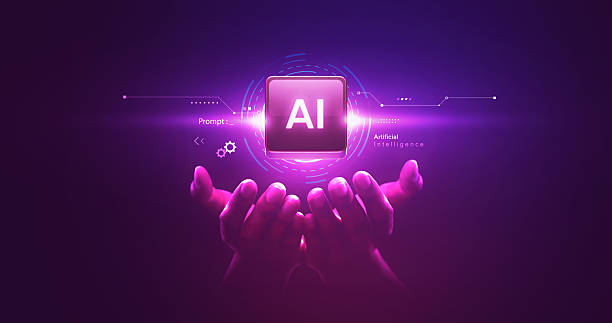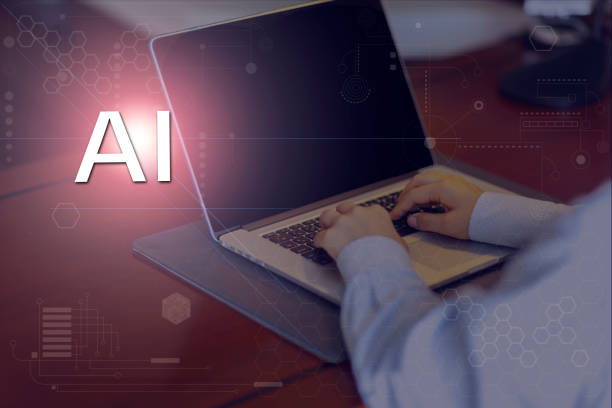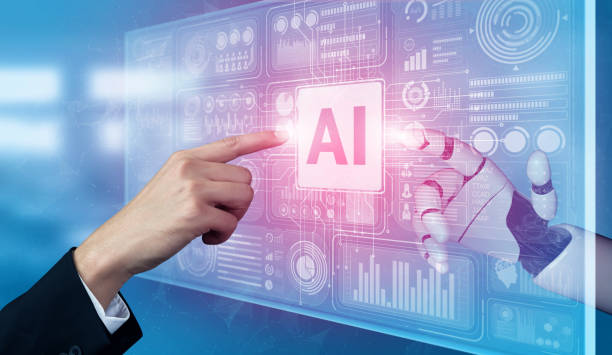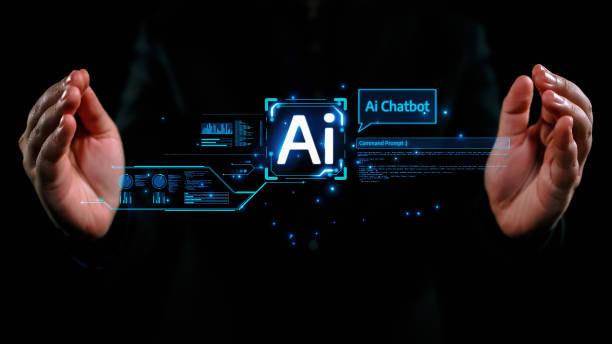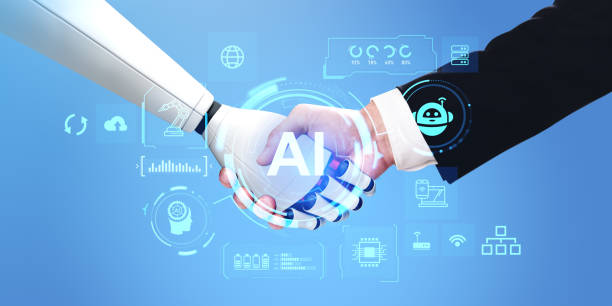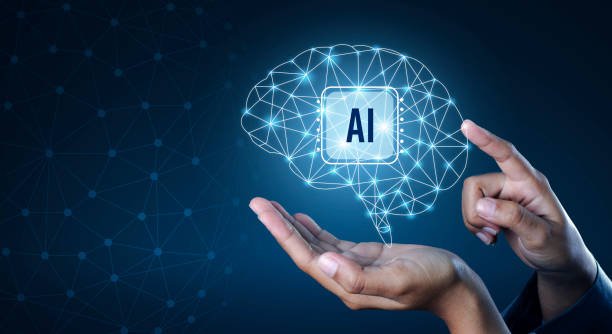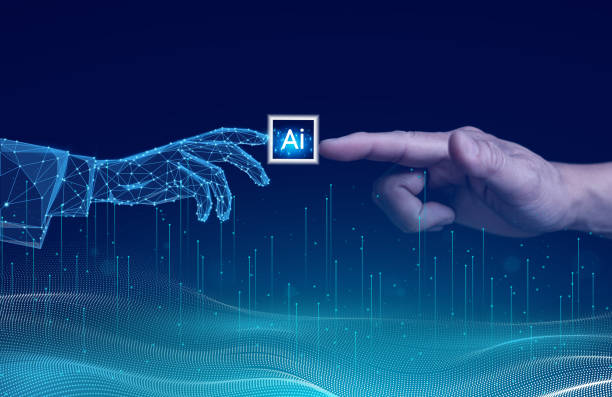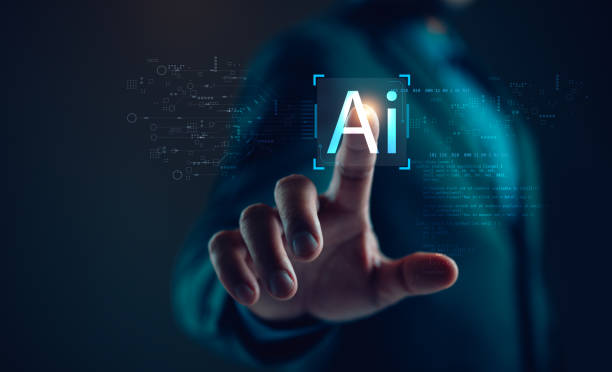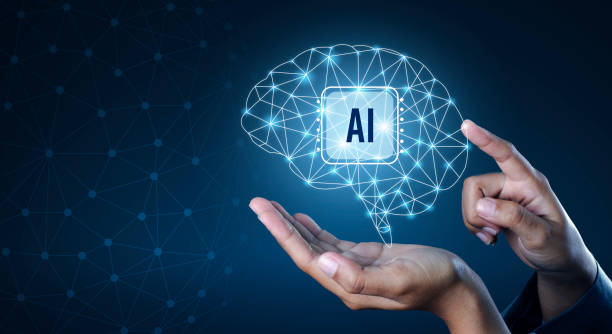What is an AI Assistant and How Does It Work?
An #AI_Assistant is a software program that uses artificial intelligence techniques to perform various tasks that typically require human intelligence.
These tasks can include answering questions, providing suggestions, performing calculations, generating text, and many other things.
The operation of an AI assistant is based on machine learning, natural language processing (NLP), and other AI-related techniques.
In short, an AI assistant receives input (e.g., a user’s question or command), processes it, and uses trained models to produce an appropriate answer or output.
One of the key components in the performance of an AI assistant is natural language processing.
NLP allows machines to understand and interpret human language.
This process involves steps such as grammatical, semantic, and contextual analysis.
After understanding the user’s input, the AI assistant uses its knowledge base (which typically includes training data and machine learning algorithms) to generate a response or perform the desired task.
For example, if you ask an AI assistant, “What is the weather like in Tehran?”, the assistant first analyzes your question using NLP.
Then, using weather information in its database, it generates and provides you with an appropriate answer.
This process is completed in a few seconds, allowing the user to quickly access the information they need.
There are different types of AI assistants, each designed for specific applications.
Some of these assistants operate by voice (like Siri and Alexa), while others are available in text form (like chatbots).
Are you worried that your company’s old website is driving away new customers? Rasaweb solves this problem by designing a modern and efficient corporate website.
✅ Increases your brand credibility.
✅ Helps to attract targeted customers.
⚡ Contact Rasaweb for a free consultation!
Diverse Applications of AI Assistants in Everyday Life
AI assistants have very wide-ranging applications in our daily lives.
These applications include:
- Answering questions and providing information: AI assistants can answer various user questions and collect and present the information needed from various sources.
- Managing schedules and tasks: AI assistants can help users manage daily schedules, remind them of tasks, and schedule appointments.
- Providing personalized recommendations: By analyzing user data, AI assistants can provide personalized recommendations in various fields such as shopping, entertainment, and travel.
- Controlling smart devices: AI assistants can help users control smart home devices such as lights, thermostats, and televisions.
- Customer support: Many companies use chatbots and AI assistants to provide customer support.
These assistants can answer common customer questions and resolve their issues.
Click here to preview your posts with PRO themes ››
For example, imagine you want to plan a vacation.
Using an AI assistant, you can easily book airline tickets, find a suitable hotel, and set up recreational plans for yourself.
The AI assistant analyzes the available information, suggests the best options for you, and saves you time and energy.
In addition, AI assistants can also play an important role in the field of education.
These assistants can help students learn course materials, answer their questions, and provide personalized exercises and quizzes.
Comparing Popular AI Assistants on the Market
Currently, there are numerous AI assistants on the market, each with its own features and capabilities.
Some of the most popular of these assistants include:
- Google Assistant: This AI assistant is developed by Google and is available on Android and iOS devices.
Google Assistant offers a wide range of features, including answering questions, managing schedules, controlling smart devices, and providing personalized recommendations. - Siri: This AI assistant is developed by Apple and is available on iOS and macOS devices.
Siri has similar capabilities to Google Assistant, but focuses more on voice interaction. - Amazon Alexa: This AI assistant is developed by Amazon and is available on Echo devices and other smart devices.
Alexa is mostly used for controlling smart home devices and playing music. - Microsoft Cortana: This AI assistant is developed by Microsoft and is available on Windows devices.
Cortana offers various features, including managing email, reminding tasks, and providing information.
Choosing the best AI assistant depends on your personal needs and preferences.
If you use Android devices, Google Assistant is a good option for you.
If you use iOS devices, Siri is a better choice.
If you are looking for an AI assistant to control smart home devices, Amazon Alexa is a good option.
And if you use Windows devices, Microsoft Cortana can help you.
| AI Assistant | Operating System | Main Application |
|---|---|---|
| Google Assistant | Android, iOS | Answering questions, managing schedules |
| Siri | iOS, macOS | Voice interaction |
| Amazon Alexa | Echo, Smart Devices | Controlling smart home devices |
| Microsoft Cortana | Windows | Managing email, reminding tasks |
Challenges and Limitations of AI Assistants
Despite their many advantages, AI assistants still face challenges and limitations.
Some of these challenges include:
- Limited understanding of natural language: AI assistants still have difficulty in fully and accurately understanding natural language.
They may make mistakes in recognizing dialects, idioms, and complex phrases. - Need for continuous training and updates: AI assistants need continuous training and updates to improve their performance.
This process requires collecting and processing large amounts of data. - Privacy concerns: Using an AI assistant can raise concerns about users’ privacy.
These assistants usually collect and store users’ personal information. - Dependence on internet connection: Many AI assistants require an internet connection to function properly.
This can be problematic in areas with limited internet access. - Possible errors: AI assistants may make mistakes in answering questions or performing tasks.
These errors can result from problems in training data, algorithms, or technical infrastructure.
For example, an AI assistant may have difficulty understanding a complex command that includes multiple conditions and constraints.
Or it may have trouble recognizing a particular accent and may not be able to provide an appropriate response.
These limitations show that the AI assistant is still under development and improvement and needs further progress in various fields.
Did you know that your customers’ first impression of your company is your website? Multiply the credibility of your business with a powerful corporate website from Rasaweb!
✅ Custom and eye-catching design to match your brand
✅ Improve user experience and increase customer acquisition
⚡ Get a free consultation!
What Will the Future of AI Assistants Be?
The future of AI assistants is very bright and full of potential.
With the increasing advancements in the field of artificial intelligence, AI assistants are expected to offer much more capability in the future.
Some of these capabilities include:
- Better understanding of natural language: With the development of more advanced NLP algorithms, AI assistants will be able to understand natural language more accurately and completely.
- More personalization: AI assistants will be able to provide more personalized experiences by analyzing user data.
- Integration with other technologies: AI assistants will be integrated with other technologies such as augmented reality, virtual reality, and the Internet of Things, creating new user experiences.
- Ability to learn and adapt: AI assistants will be able to continuously learn from their experiences and improve their performance.
- Solving complex problems: AI assistants will be able to solve more complex problems and make better decisions.
For example, in the future we may see AI assistants that can automatically respond to emails, prepare financial reports, and even prescribe appropriate medications for patients.
These advances can make our lives easier and more efficient.
Also, by integrating AI assistants with wearable devices such as smartwatches and smart glasses, users can easily use the capabilities of these assistants anytime and anywhere.
How to Choose a Suitable AI Assistant?
Choosing a suitable AI assistant depends on your personal needs and preferences.
To choose the best option, you should pay attention to the following factors:
- Operating system: Make sure that the AI assistant is compatible with your device’s operating system.
Some AI assistants are only available on Android or iOS devices. - Capabilities: Check the capabilities of the AI assistant and make sure it meets your needs.
Some AI assistants have more extensive capabilities than others. - Privacy: Review the privacy policy of the AI assistant and make sure your personal information is kept secure.
- Price: Check the price of the AI assistant and make sure it fits your budget.
Some AI assistants are free, while others require payment. - User reviews: Read other users’ reviews of the AI assistant and use their experiences.
For example, if you are looking for an AI assistant to answer questions and provide information, Google Assistant or Siri will be suitable options for you.
If you are looking for an AI assistant to control smart home devices, Amazon Alexa is a good option.
And if you are looking for an AI assistant to manage email and remind tasks, Microsoft Cortana can help you.
Important Tips for Using AI Assistants
To optimize the use of AI assistants, it is essential to follow these tips:
- Clear and concise commands: When talking to an AI assistant, use clear and concise commands.
This helps the assistant to better understand what you mean. - Using keywords: Use keywords related to your topic of interest.
This helps the assistant to find more accurate information. - Software updates: Update the AI assistant software regularly.
This helps improve performance and fix potential problems. - Reviewing privacy settings: Review the privacy settings of the AI assistant and make sure your personal information is kept secure.
- Training the assistant: Train the AI assistant to better understand your interests and preferences.
This helps the assistant to provide more personalized suggestions.
For example, if you want to ask the AI assistant, “What is the weather like in Tehran?”, instead of saying “How’s the weather?”, use a clearer command such as “What is the weather like in Tehran?”.
Also, if you want the AI assistant to play a particular song, mention the song title and artist name in full.
This helps the assistant to quickly find the song you want.
| Tip | Explanation |
|---|---|
| Clear commands | Using accurate and understandable commands |
| Keywords | Using vocabulary related to the topic |
| Update | Keeping software up-to-date |
| Privacy | Managing privacy settings |
Impact of AI Assistants on Jobs
AI assistants have a significant impact on various jobs.
On the one hand, it can increase productivity and efficiency, and on the other hand, it may lead to the loss of some jobs.
Some of the impacts of AI assistants on jobs include:
- Increased productivity: AI assistants can automate repetitive and time-consuming tasks, allowing employees to focus on more important tasks.
- Cost reduction: By automating some tasks, companies can reduce their costs.
- Creating new jobs: The development and maintenance of AI assistants requires the creation of new jobs in various fields such as artificial intelligence, programming, and data analysis.
- Changing the nature of jobs: The nature of some jobs may change with the advent of AI assistants.
Employees need to learn new skills to be able to work with these technologies. - Losing some jobs: Some jobs that are fully automatable may disappear with the advent of AI assistants.
For example, in the customer service industry, chatbots and AI assistants can answer common customer questions and resolve their issues.
This can lead to a reduced need for human labor in this sector.
On the other hand, companies need AI specialists and programmers to develop and maintain these assistants.
Therefore, the impact of AI assistants on jobs is a complex issue that requires careful review and planning.
Are you worried that your company’s old website is driving away new customers? Rasaweb solves this problem by designing a modern and efficient corporate website.
✅ Increases your brand credibility.
✅ Helps to attract targeted customers.
⚡ Contact Rasaweb for a free consultation!
AI Assistants and Privacy
Maintaining privacy is one of the most important concerns in using AI assistants.
These assistants usually collect and store users’ personal information.
This information may include personal information, search history, location information, and other sensitive data.
To maintain privacy when using an AI assistant, it is essential to follow these tips:
- Review the privacy policy: Before using an AI assistant, carefully review its privacy policy.
Make sure that your personal information is kept secure and is not shared with third parties. - Manage privacy settings: Review the privacy settings of the AI assistant and adjust them according to your preferences.
You can determine what information is collected and how it is used. - Limit access: Limit the AI assistant’s access to your personal information.
For example, you can disable the assistant’s access to your location information. - Use a strong password: Use a strong password for your account and change it regularly.
- Be careful about the information you share: When talking to the AI assistant, be careful about the information you share.
Avoid providing sensitive and unnecessary information.
Companies developing AI assistants must take the necessary measures to protect users’ privacy.
These measures may include using encryption, anonymizing data, and providing privacy controls to users.
Also, privacy laws and regulations must be strictly enforced to prevent the misuse of users’ personal information.
The Future of Human-AI Assistant Interaction
The future of human and AI assistant interaction is very exciting and full of possibilities.
With the increasing advances in the field of artificial intelligence, this interaction is expected to become more natural, more personal, and more efficient in the future.
Some of the key trends in the future of human and AI assistant interaction include:
- Multifaceted interaction: AI assistants in the future will be able to interact with users using various methods such as audio, image, and text.
- Deep personalization: AI assistants will be able to provide more personalized experiences by analyzing user data.
- Smart collaboration: AI assistants will be able to collaborate with humans in performing various tasks and help them solve complex problems.
- Continuous learning: AI assistants will be able to continuously learn from their experiences and improve their performance.
- Empathy and emotional intelligence: AI assistants will be able to understand and react to human emotions.
For example, in the future we may see AI assistants that are able to connect with users using emotional intelligence and help them manage stress and anxiety.
Or we may see AI assistants that are able to accelerate disease diagnosis and provide more effective treatments by collaborating with physicians.
These advances show that the AI assistant will play a more important role in our lives in the future and will help us perform various tasks.
AI assistants will be powerful tools serving humanity.
Frequently Asked Questions
| Number | Question | Answer |
|---|---|---|
| 1 | What is an AI Assistant? | An AI assistant is a software program that uses artificial intelligence to help users perform various tasks, provide information, or automate processes. |
| 2 | What are some examples of AI assistants? | Famous examples include Siri, Google Assistant, Alexa, and Cortana. |
| 3 | How does an AI assistant work? | AI assistants typically use natural language processing (NLP) to understand user voice or text commands and machine learning to improve their performance. |
| 4 | What capabilities does it have? | Capabilities such as answering questions, setting reminders, playing music, sending messages, controlling smart devices, and providing weather information. |
| 5 | How is data secured in AI assistants? | Data security is a major concern. Companies strive to protect user data using encryption and privacy policies, but users should always be aware of potential risks. |
| 6 | Can AI assistants understand emotions? | Currently, AI assistants cannot understand real emotions, but they can recognize tones and words associated with emotions and provide appropriate responses. |
| 7 | What are the applications of AI assistants in the workplace? | In the workplace, they can be used to schedule meetings, manage emails, search for information, and even help draft documents. |
| 8 | What will the future of AI assistants be like? | In the future, they are expected to be smarter, more personal, and have more capabilities, so that they can actively anticipate users’ needs and even help with complex decisions. |
| 9 | What is the difference between an AI assistant and a chatbot? | AI assistants typically have a wider range of capabilities and interactions (often voice), while chatbots typically focus on specific tasks in a text-based context. |
| 10 | How can an AI assistant be used to its best advantage? | For optimal use, you should familiarize yourself with its voice commands and capabilities, sync it with other devices, and allow it to learn your usage patterns through interactions. |
And other services of Rasa Web Advertising Agency in the field of advertising
Smart Reporting: An effective tool for online growth with the help of intelligent data analysis.
Smart Google Ads: A combination of creativity and technology to increase sales through custom programming.
Smart SEO: An exclusive service for improving SEO ranking based on intelligent data analysis.
Smart Sales Automation: An exclusive service for increasing website visits based on attractive user interface design.
Smart Customer Journey Map: A professional solution to increase website visits by focusing on SEO-driven content strategy.
And more than hundreds of other services in the field of internet advertising, advertising consulting and organizational solutions
Internet Advertising | Advertising Strategy | Reportage Ads
Resources
What is Generative AI and What are its applications?
,What is Artificial Intelligence? — In Simple Terms + Applications
,The use of artificial intelligence in data analysis
,What are the applications of artificial intelligence in business management?
? To have a strong presence in the online space and to see your business, Rasaweb Afarin is with you by providing comprehensive digital marketing services, including professional WordPress website design.
📍 Tehran, Mirdamad Street, next to the Central Bank, South Kazerun Alley, Ramin Alley, No. 6

